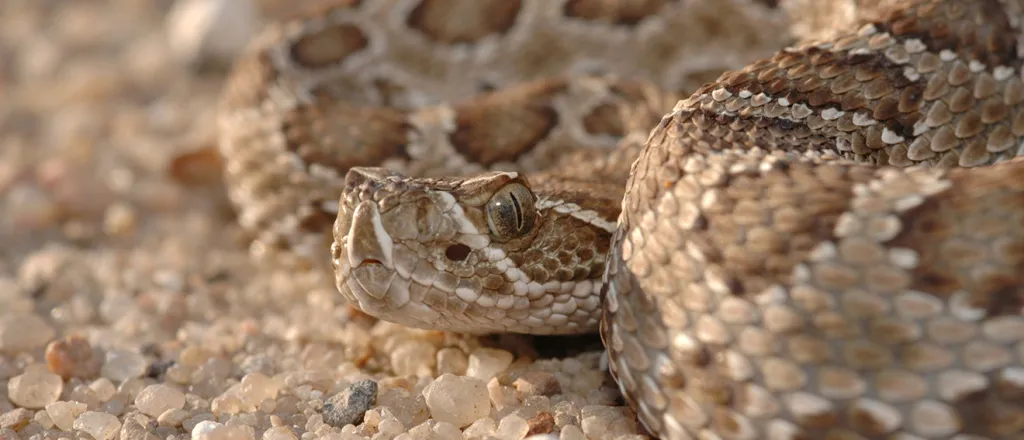
If you are very afraid of snakes, you are not alone. Gary Crawford has more.
PARTICIPANTS: Gary Crawford and Kansas State University wildlife management specialist, Drew Ricketts.
Transcript
And now, classic comedian W.C. Fields on the subject of snakes.
Some of my best friends now are snakes.
Yeah, particularly rattlesnakes.
I'll never forget the time I found a rattlesnake imprisoned under a rock.
So I freed him, and with a grateful look in his eyes, he followed me home.
And just before the little fellow curled up to sleep, he tried to kiss me.
Ooh, kissed by a snake?
I guess I am one of millions of people who not only want nothing to do with snakes, but who suffer from a strong fear or unreasoning aversion to them, a fear that's off the scale, so to speak.
And it has a scientific name, doesn't it?
The fear of snakes is called a "phidiophobia."
That's Drew Ricketts.
He's a Kansas State University wildlife management specialist.
So what was that name again of "ophidiophobia"?
It's O-P-H-I-D-I-O, and then phobia, P-H-O-B-I-A.
The breakdown of that is "ophidio," which is the Greek word for snake.
And then phobia, of course, is fear.
Now, some say we have this innate, built-in fear of snakes, but Drew believes a lot of it comes from stories we've been exposed to since childhood, stories that give reptiles a very bad rep, so to speak.
Definitely.
There's a strong association for humans with snakes as a source of evil.
Oh, yes.
And Drew says sometimes our parents can instill some fears about snakes.
You know, we're taught sometimes when we're young that we should fear snakes, and so adults want us to fear snakes when we're young so that we don't get a hold of something that we had not to.
Because, of course, kids will grab a hold of anything.
And it's sort of healthy to have at least some level of fear of things that could hurt us, especially if we can't tell the difference between the ones that might hurt us bad and the ones that might be, you know, overall beneficial and might not hurt us at all.
Yes, because actually, Drew says snakes provide a much-needed service for us.
Biologists would call it an ecological service that critters like snakes provide by, you know, eating rodents that might get into our buildings or get into our houses and cause other problems that way or by, you know, reducing insect abundance or eating other snakes, including venomous snakes.
You know, that's definitely a very positive role that snakes play.
Yeah, but some of us would just as soon not have them living in our yards, slithering around there or getting into our homes.
Next time, we're going to take a look at some ways to make our homes a little less inviting to our friends the snakes.
Gary Crawford reporting for the U.S. Department of Agriculture.








